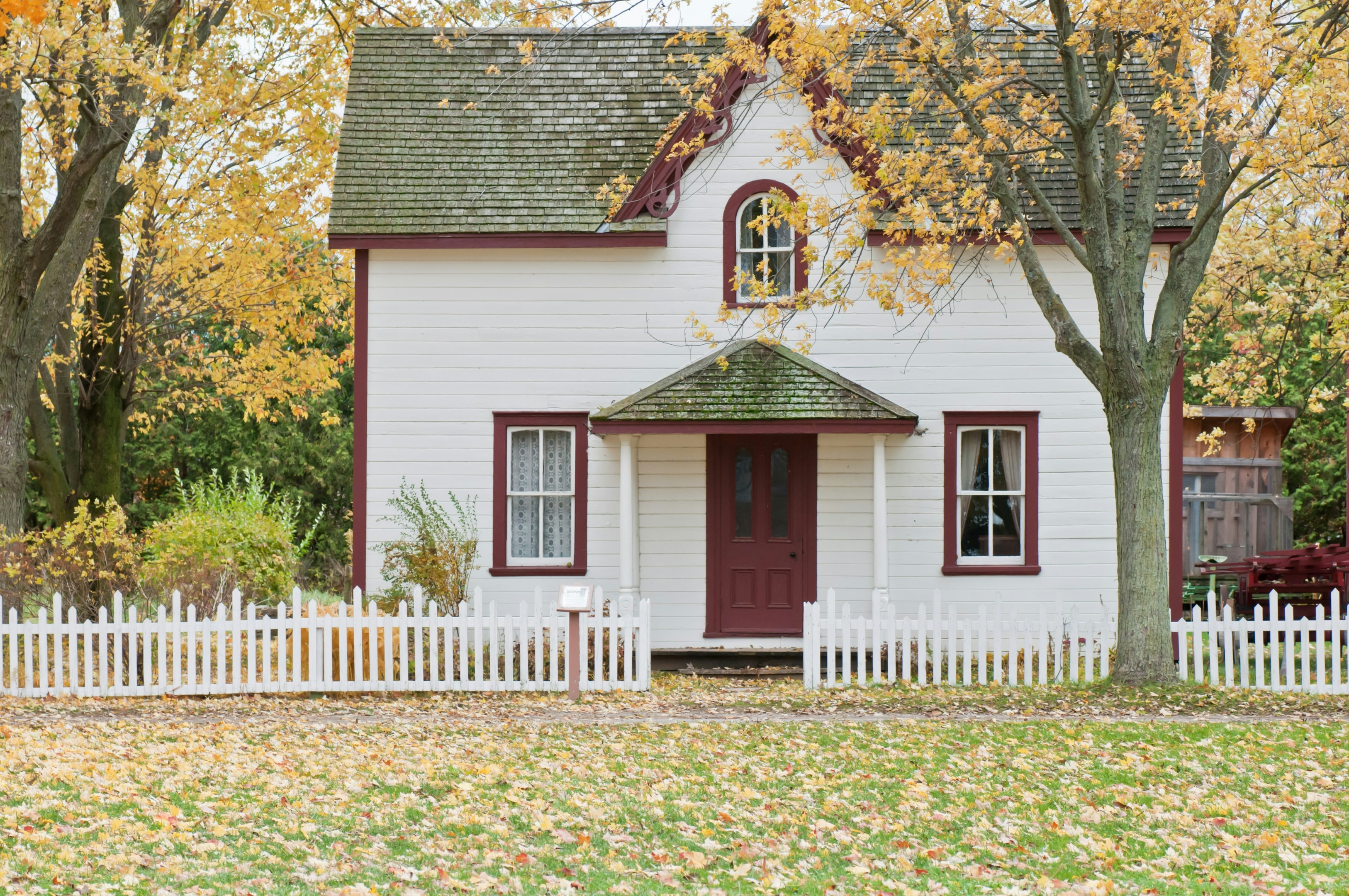Top Probate Homes for Sale: A Guide to Valuable Real Estate Deals
Introduction: What Are Probate Homes and Why Should You Care?
If you're a real estate investor, you've probably heard terms like "distressed property" or "foreclosure," but probate homes are a lesser-known niche with great potential. When someone passes away leaving property, it often enters probate—a legal process where an executor manages the estate and may sell the home to settle debts or distribute assets. These probate homes are frequently sold below market value with less competition, offering investors a unique chance to find deeply discounted properties. Whether you're experienced or new to investing, understanding how to find and close probate deals can unlock profitable opportunities.

Understanding the Probate Process in Real Estate
What Exactly Is Probate?
Probate is the legal process through which a deceased person's assets—like real estate—are transferred to heirs or sold to pay debts. It ensures everything is settled properly under state law, especially if there's no will. To learn more about the process and steps of probate, see Probate for Sale: A Complete Guide to Buying Probate Real Estate.
Who Manages the Property?
A court-appointed executor or administrator manages the estate, including deciding whether to sell the home. Their job is to pay off any outstanding debts or taxes and distribute the proceeds among heirs.
When Do Probate Homes Hit the Market?
Once an executor is appointed and gains authority to sell the property, the home can be listed. In some states, court confirmation is needed before a sale can close, while others allow independent administration.
Why Probate Homes Can Be Lucrative for Investors
Motivated Sellers
Executors are often motivated to begin selling the property quickly to settle the estate and move on. That urgency creates room for negotiation.
Below Market Prices
Most heirs aren't emotionally attached to the property. They want cash—not a fixer-upper, which can result in a reduced price for buyers. That can lead to steep discounts.
Less Buyer Competition
Most home buyers are unfamiliar with probate, which makes it a niche market for informed investors.
"As-Is" Sales
Probate homes are typically sold as-is, often with deferred maintenance due to lack of upkeep by the previous owner, meaning there's a high chance you'll get the property in need of updates—an opportunity to add value.
Types of Probate Properties You Can Buy
A probate house refers to a property owned by an estate and sold through the court-supervised probate process. Probate homes aren't limited to single-family houses. You'll also find:
Single-family houses, which are the most common type of probate house sold by estates
Condos in city centers
Townhomes in suburban areas
Multifamily buildings (especially if the deceased was a landlord)
Vacant land
Fixer-uppers ripe for flipping

Where to Find Probate Homes for Sale
Here's how to tap into this often-overlooked niche. Effective marketing strategies, such as targeted outreach and working with a broker or real estate agent, can help uncover probate opportunities and connect you with motivated sellers. Probate properties are sometimes sold at public auction, which are typically open to the public and can be a great way to find deals. Before attending an auction, it's important to contact the listing agent to obtain key details about the property and the bidding process to help you prepare and make informed decisions during the auction.
Public Probate Court Records
Most counties now provide online access to probate court records, making it easier than ever to search for estate filings or petitioned sales of real estate. By regularly checking these public records, you can identify properties entering probate early in the process. This proactive approach allows investors to monitor upcoming sales and position themselves ahead of other buyers. Some counties also publish detailed case information, including executor details and court hearing dates, which can be valuable for planning your next move. For tips on gathering public records, see Using Public Records to Find Probate Properties: A Step-by-Step Guide.
Legal Notices in Local Newspapers
Executors are often required by law to publish a "Notice to Creditors" or other legal announcements in local newspapers. These notices typically include important details about the estate, such as property descriptions and deadlines for claims. Scanning these legal sections regularly can help you spot probate properties before they hit the broader market. While these notices may seem dry, they are a reliable source of information that signals an estate is being administered and may soon list real estate for sale.
Probate Listing Websites
Several specialized websites aggregate probate leads and offer subscription-based access to daily or weekly probate property listings. Examples include:
ForeclosuresDaily
SuccessorsData
These platforms gather data from multiple public sources and court records to provide comprehensive lists of probate properties. Using such services can save you time and help you gain a competitive edge by giving you early access to new probate opportunities that might not be widely advertised.
Network with Probate Professionals
Building relationships with probate attorneys, estate sale companies, and court clerks can provide invaluable early access to probate leads. These professionals are often the first to know when an estate is being settled or when a property will soon be listed. Networking with them through local real estate groups, bar associations, or community events can help you stay informed and develop trusted contacts who can alert you to upcoming sales. For tips on expanding your local network, see Mastering Real Estate Networking: Successful Strategies for Success.
Real Estate Agents Who Specialize in Probate
Some real estate agents specialize exclusively in probate homes and estates, offering expertise in navigating the unique legal and procedural aspects
How to Evaluate a Probate Property
When you find a promising probate lead, it's important to do your due diligence by carefully evaluating the real property being sold through probate. This process involves confirming legal ownership, understanding the property's condition, and ensuring all necessary documentation is in order.
Title Search
Ensure the title is clear of liens, judgments, or ownership disputes. Title companies or attorneys can assist.
Check for Court Confirmation Requirements
Some states require court approval before the sale can close, often involving a court hearing and an overbidding process. In these cases, probate properties may be sold at a public auction, where the highest bidder determines the final sale price, all subject to court approval. Other states let the executor sell with minimal court involvement.
Estimate Repair Costs
Probate homes are often outdated or neglected. Inspect thoroughly and prepare for cosmetic and structural repairs. Having a budget prepared when going into a new investment (especially when neglected) is important to ensure investors get the most out of their money. To learn more, see Essential Strategies for Budgeting for Real Estate Investing Success.
Calculate Your Maximum Allowable Offer (MAO)
Use the formula MAO = (ARV × 70%) – Repairs – Closing Costs to ensure a profitable margin whether you plan to flip, wholesale, or hold the property. Keep in mind that in competitive situations, you may need to offer more to secure the probate home, especially if other bidders are involved.

How to Make an Offer on a Probate Home
Standard Sale
If the executor has full authority, the transaction proceeds like a traditional home sale. This means the process can be quicker and less complicated, allowing buyers to move forward with more confidence.
Court-Confirmed Sale
You submit your offer, and a court hearing is held. Other buyers may bid at the hearing, like an auction, which can sometimes drive the price higher but ensures a fair market value is achieved.
Tips for Success
Include earnest money to show seriousness
Be flexible on timelines
Work closely with your agent and title company
Legal Aspects of Probate Transactions
Disclosure Rules
While probate homes are "as-is," sellers may still need to disclose material facts or hazards, depending on the state. It's important for buyers to understand that disclosure requirements can vary, so consulting with a probate attorney or real estate professional can help clarify what information should be expected during the transaction.
Legal Delays
Heirs disputing the will or property ownership can delay or even block a sale—make sure everyone is on board. These disputes can sometimes lead to lengthy court battles, which may extend the probate process and affect your timeline as a buyer.
Attorney Involvement
Many probate transactions are facilitated by estate attorneys. Be respectful, professional, and patient. Attorneys play a key role in ensuring the sale complies with probate laws and protects the interests of all parties involved, so maintaining good communication with them can smooth the process.
Pros and Cons of Buying Probate Homes
Pros
Often undervalued
Potential for high ROI
Lower buyer competition
Opportunity for direct-to-seller deals
Cons
Longer closing timelines
Possible legal disputes
Limited property disclosures
Property condition may require heavy rehab
To learn more about the pros and cons associated with probate, see Essential Insights from the Probate Daily: What You Need to Know.

Creative Probate Investment Strategies
Pre-Probate Prospecting
Using obituaries and public data, you can reach heirs before the property hits probate court. This early contact allows you to build relationships and potentially negotiate deals before the property becomes widely known or listed, giving you a competitive edge.
Direct Mail Campaigns
Create tailored letters offering a quick, respectful cash sale. Build trust and be compassionate in your messaging, as these situations often involve grieving families who appreciate sensitivity and professionalism. To learn more about how to craft an effective email campaign, see Maximize Your Impact with Real Estate Direct Mail Strategies for 2026.
Partnering with Wholesalers
Wholesalers often uncover probate leads through skip tracing and cold calling. Consider JV partnerships to split deals, which can expand your reach and resources, making it easier to secure more probate properties. If you're interested in learning more about wholesaling or getting started yourself, see Mastering Real Estate Wholesaling: A Practical Guide for Success.
Using Seller Financing
In some cases, heirs may carry financing if they can't agree on price or want to spread capital gains. This creative financing option can make deals more flexible and accessible for both buyers and sellers, especially when cash offers aren't feasible.
Red Flags to Watch Out For
Heir disagreements over the sale can complicate the process, as can outdated titles with unresolved liens or debts. Additionally, probate homes may be hoarded or damaged, often requiring full gut renovations. The probate process itself can involve long timelines, especially in complex estates or when wills are contested.

Final Thoughts: Should You Invest in Probate Homes?
If you're tired of bidding wars and overpriced MLS deals, probate homes offer a unique opportunity to find profitable deals with less competition. These properties often come with motivated sellers eager to close quickly, which can lead to favorable terms and pricing for savvy investors. While the process can involve slower timelines, legal complexities, and occasional family issues, approaching it with professionalism and patience can uncover hidden gems before others even know they exist. With thorough research and the right team, probate homes can become a valuable addition to your investment portfolio, providing opportunities that traditional real estate markets simply don't offer.